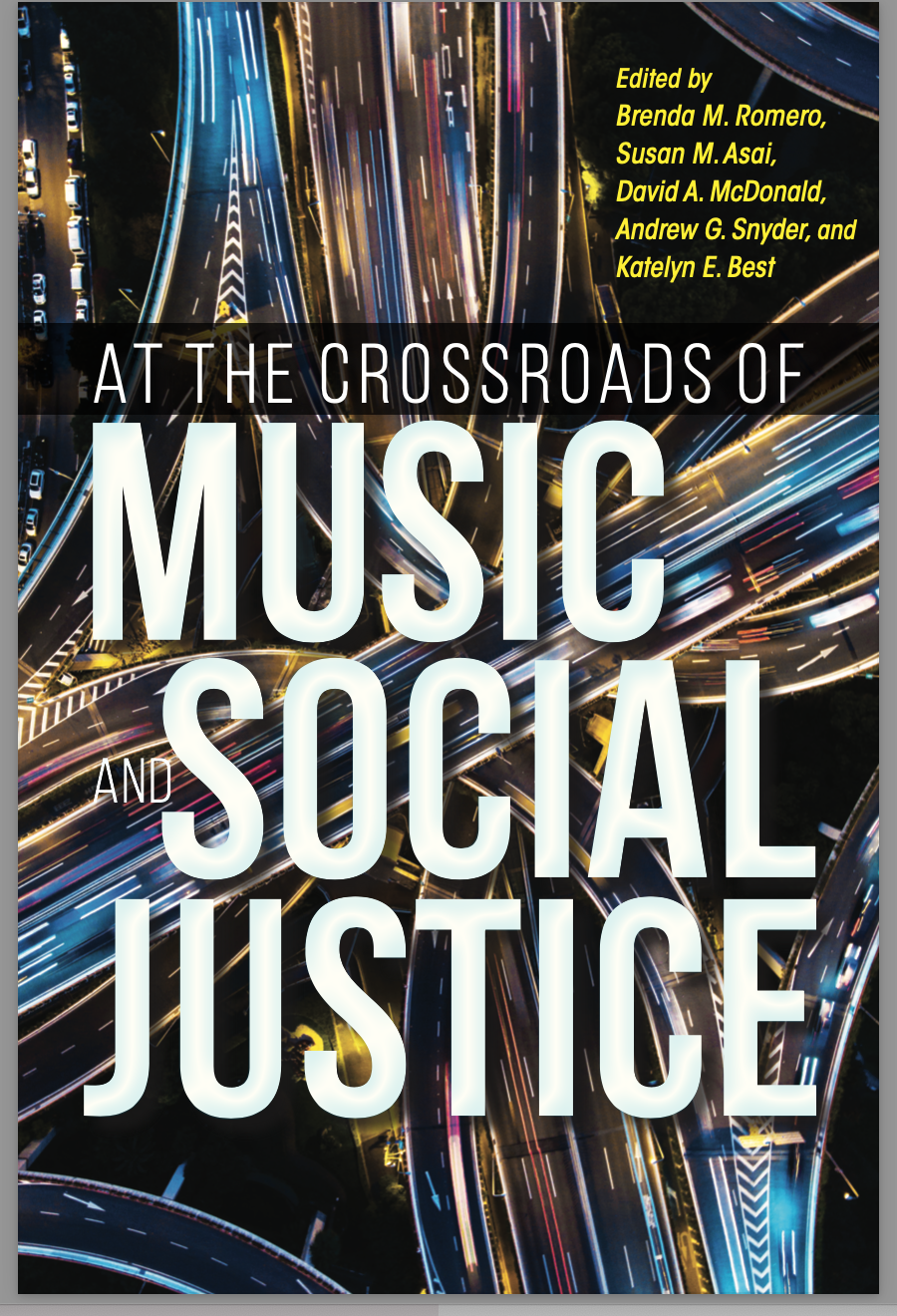|
At the Crossroads of Music and Social Justice
Indiana University Press 2022 Winner of the 2023 Ellen Koskoff Edited Volume Prize, honoring each year a book collection of ethnomusicological essays of exceptional merit, and recipient of an honorable mention for the 2023 Bruno Nettl Prize, recognizing an outstanding publication contributing to or dealing with the history of the field of ethnomusicology, broadly defined, or with the general character, problems, and methods of ethnomusicology, both from The Society of Ethnomusicology. Co-edited by Andrew Snyder, Brenda Romero, Susan Asai, David McDonald and Katelyn Best, At the Crossroads of Music and Social Justice aims to promote a justice-oriented ethnomusicology, one that puts ethics at the forefront of the concerns of researchers, teachers, and practitioners of the world’s diverse musical practices. Emerging from the Society for Ethnomusicology’s Crossroads Section for Difference and Representation, the book offers research that intersects with a diversity of social categories, including race, class, ethnicity, gender, sexuality, and disability in ways that highlight the challenges facing marginalized communities and identities, as well as their creative responses. This book is divided into four sections that represent a sequence of political actions beginning with genuine listening to marginalized perspectives and leading ultimately to political transformation: “Truth Telling and Listening,” “Radical Inclusivity,” “Coalition Building,” and “Direct Action.” All of the ethnographies advance the frontiers of scholarship in an effort to be more inclusive and creative in approaches to research and writing. In addition to more traditional ethnographies, the editors invited six established ethnomusicologists, mostly scholars of marginalized communities who have supported the Crossroads Section through leadership and advocacy, to reflect autoethnographically about their concerns with the intersections of music and social justice throughout their careers. Table of Contents Preface Andrew Snyder and Katelyn Best Introduction: Pathways to a Justice-Oriented Ethnomusicology David A. McDonald Part 1: Truth Telling and Listening Lovingly Diversity on Repeat: Deceptive Cadences of Social Domination in Ethnomusicology Kyra D. Gaunt Social Justice and My Work as a Music Scholar, Teacher, and Artist Steven J. Loza Punk Politics: Reflections on Institutional Transformation Brenda M. Romero Going Forward with Vigilance: American Indian Music is Always There Charlotte W. Heth Deliver Me from Danger, Èşù-Elẹgbára!: Musical Offerings in Social Justice Paul Austerlitz Part 2: Radical Inclusivity Ethnocentrism 2.0: Hearing-Centrism, Inclusivity, and Musical Expression in Deaf Culture Katelyn E. Best Pink Menno Hymn Sings: Queerness, Inclusivity, and the Mennonite Church Katie Graber Unsettling Race as Challenge for Global Justice: Racecraft in the Egyptian Independent Music Scene Darci Sprengle Reclaiming Nanook of the North: Tanya Tagaq’s Sonic and Performative Counterpoints to Inuit Stereotypes Ho Chak Law “If I Could Go Back in Time”: Rethinking Popular Culture, Social Justice, and the Compassionate Gaze in Palestine David A. McDonald Part 3: Coalition Building Promoting Social Justice through Traditional Irish Music: A New Model for Applied Research Alexandria Carrico The Sonic Politics of Interracial Coalitions Susan M. Asai “¡Vamos a Pelear en la Guerra!”: Musical Manifestations of Coalition Building in the South Texas Chicano Movement Erin E. Bauer Part 4: Direct Action “Music is Liberation”: The Brass Liberation Orchestra and Music as a Tactic of Direct Action Andrew G. Snyder Ecological Frictions and Borderless Futures: The Art and Activism of Filastine and Nova Rebekah E. Moore Raising the Imperative for Direct Action Susan M. Asai Circling Back on Direct Action: On Difference and Representation Brenda M. Romero |

